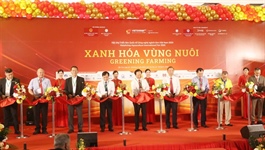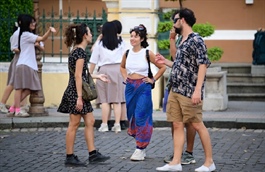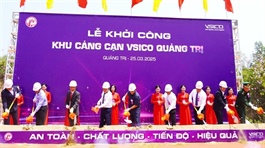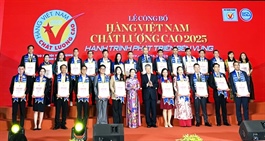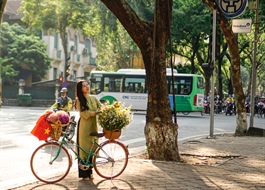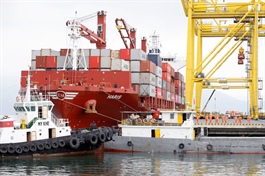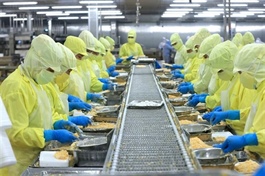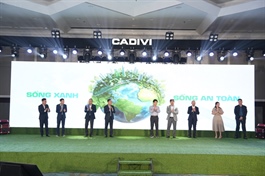Việt Nam's agricultural exports face quality control obstacles
Việt Nam's agricultural exports face quality control obstacles
Strict regulations in key export destinations require businesses to meet international standards, while the country's reliance on raw material exports limits value-added opportunities.
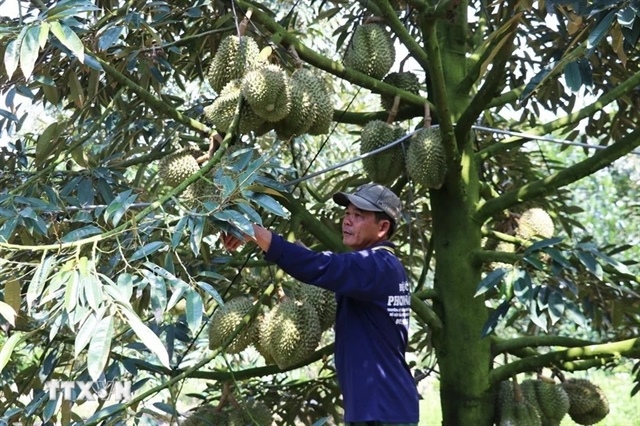
A farmer tends to durian trees in the southern province of Tiền Giang. VNA/VNS Photo |
Việt Nam holds significant potential for investment in agricultural production, processing and exports. However, numerous obstacles are hindering the country’s agricultural exports, particularly in quality control, said industry experts and insiders.
According to the Vietnam Fruit and Vegetable Association (VINAFRUIT), fruit and vegetable exports in March 2025 are estimated at US$421 million, down 10.5 per cent year-on-year. This marks the third consecutive month of declining export revenue, in stark contrast to 2024, when the industry saw robust growth throughout the year. Thus far in the first quarter of 2025, total fruit and vegetable exports have reached $1.1 billion, a 13.2 per cent decrease compared to the same period in 2024.
Frozen durian exports highlight the difficulties faced by the sector. Việt Nam gained access to the Chinese market for frozen durian in August 2024. However, no shipments have been exported to date, and hopes for a surge in export revenue remain unfulfilled.
Bùi Phú Tôn, director of Nghiệp Xuân Import-Export Trading Co., Ltd. in Gia Nghĩa, Đắk Nông Province, one of the pioneers in exporting fresh durian to China, said that his company had yet to export frozen durian to this market due to certification delays. The main challenge lay in maintaining the required core temperature of -18°C or lower throughout storage and transportation. Temperature fluctuations when transferring goods from Vietnamese to Chinese containers led to quality issues, preventing exports.
VINAFRUIT warns that if this downward trend continues, Việt Nam may fall short of its 2025 export target. China’s stringent inspection regime applies to both fresh and frozen durian. Vietnamese exporters test their products based on sample batches, but Chinese authorities conduct additional tests at border checkpoints. If shipments fail to meet requirements, they are rejected, discouraging businesses from entering the market.
Aside from durian, other agricultural sectors face similar struggles in market access, branding and quality control. Strict regulations in key export destinations require businesses to meet international standards, while the country's reliance on raw material exports limits value-added opportunities.
Lê Thị Hồng Ngân, director of Thiên Thành Tea Co., Ltd., highlighted that despite her company’s long-standing expertise in tea production since 1993, their exported products were mostly sold under foreign brands.
Thiên Thành operates a 1.1 hectare factory in Lâm Đồng’s Lộc Sơn Industrial Park, and produces tea for its own brand, OEM clients and export markets. However, exports primarily consist of raw materials such as black, green and oolong tea, rather than finished products under Vietnamese branding.
This challenge is not unique to the tea sector. Many Vietnamese agricultural exports, from coffee to pepper, are sold as raw commodities rather than high-value branded products, limiting profitability and market competitiveness.
According to Lê Thanh Hòa, deputy director of the Department of Quality, Processing and Market Development under the Ministry of Agriculture and Rural Development, the country's agricultural sector remains fragmented. Small-scale production, high costs, inadequate post-harvest processing and a lack of standardised quality assessments hinder growth. Many quality checks still rely on experience rather than advanced technology, making it difficult for businesses to meet strict import regulations.
Hòa suggests that businesses leverage Việt Nam’s free trade agreements to benefit from tariff reductions and enhance competitiveness. Meanwhile, the Ministry of Agriculture and Rural Development is tightening quality control to meet the phytosanitary requirements of importing countries. Authorities are also enhancing monitoring, issuing warnings and enforcing strict penalties to protect Việt Nam's agricultural reputation.
- 10:47 26/03/2025







